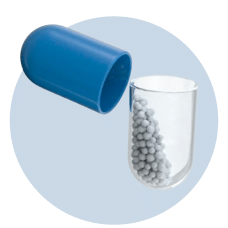Rebagen Tablet
Product introduction
Take Rebagen Tablet exactly as prescribed by your doctor, usually once or twice daily. It can be taken with or without food. To get the most benefit, follow your doctor’s instructions carefully and take the medicine regularly without missing doses. In addition to taking Rebagen Tablet, try to avoid spicy, oily, or acidic foods, limit alcohol intake, and manage stress, as these can irritate the stomach further. Quitting smoking, if you smoke, can also help improve your stomach health.
Some people may experience mild side effects like nausea, constipation, diarrhea, or abdominal discomfort. These usually go away on their own as your body adjusts to the medicine. If the symptoms bother you or persist, talk to your doctor. Serious side effects are rare, but if you experience any unusual symptoms such as severe abdominal pain, allergic reactions, or rash, seek medical help immediately.
Before starting Rebagen Tablet, tell your doctor if you are pregnant, breastfeeding, or have any liver or kidney problems. Do not take this medicine if you are allergic to rebamipide or any of its ingredients. While on treatment, avoid overuse of painkillers like ibuprofen or aspirin, as they can irritate the stomach lining and slow down healing. Always inform your doctor about any other medications or supplements you are taking to avoid possible interactions.
Uses of Rebagen Tablet
- Treatment of Stomach ulcers
- Treatment of Gastritis
Benefits of Rebagen Tablet
In Treatment of Stomach ulcers
In Treatment of Gastritis
Side effects of Rebagen Tablet
Common side effects of Rebagen
- Nausea
- Diarrhea
- Vomiting
- Abdominal pain
- Taste change
- Constipation
- Dizziness
- Drowsiness
- Heartburn
- Hypersensitivity
- Decreased white blood cell count (lymphocytes)
How to use Rebagen Tablet
How Rebagen Tablet works
Safety advice
What if you forget to take Rebagen Tablet?
All substitutes
Quick tips
- Rebagen Tablet can also be taken while you're taking NSAIDs (anti-inflammatory and analgesic drugs) to lower the chance of developing stomach ulcers.
- Inform your doctor immediately if you develop rashes, itches, and hives.
- Your doctor may perform routine blood tests to assess the functioning of your liver. Inform your doctor if you develop symptoms such as abdominal pain, loss of appetite, darkened urine, or yellowing of the eyes or skin.
- Inform your doctor if you are pregnant, planning pregnancy, or breastfeeding before taking this medicine.
- Do not stop taking this medicine unless your doctor instructs you to do so.
Fact Box
Patient concerns
User feedback
Disclaimer:
Tata 1mg's sole intention is to ensure that its consumers get information that is expert-reviewed, accurate and trustworthy. However, the information contained herein should NOT be used as a substitute for the advice of a qualified physician. The information provided here is for informational purposes only. This may not cover everything about particular health conditions, lab tests, medicines, all possible side effects, drug interactions, warnings, alerts, etc. Please consult your doctor and discuss all your queries related to any disease or medicine. We intend to support, not replace, the doctor-patient relationship.References
- Wallace JL, Sharkey KA. Pharmacotherapy of Gastric Acidity, Peptic Ulcers, and Gastroesophageal Reflux Disease. In: Brunton LL, Chabner BA, Knollmann BC, editors. Goodman & Gilman’s: The Pharmacological Basis of Therapeutics. 12th ed. New York, New York: McGraw-Hill Medical; 2011. p. 1317.
Marketer details
The list of available options shown with the same composition has been prepared upon the advice of registered medical practitioners, pharmacists affiliated with TATA 1MG. TATA 1MG does not promote any pharmaceutical product of any particular company, and all recommendations are based on the medical opinion, advisories from specialist medical and pharmaceutical professionals.
Lab tests offered by us










